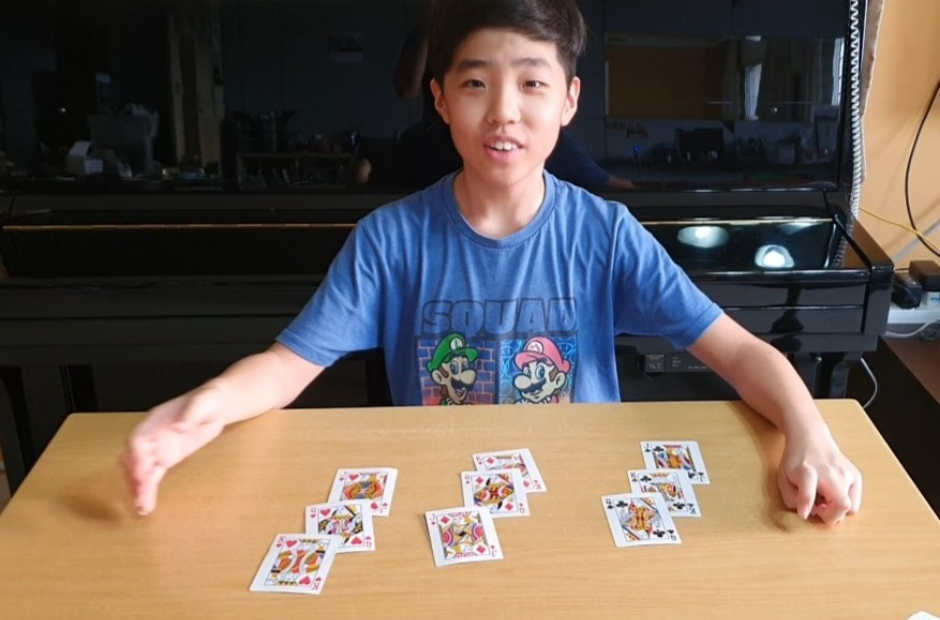With teens constantly glued to their devices — phones, tablets, laptops — parents are worried not only about the amount of screen time, but also about what they are watching and doing online.
Here are 5 pressing concerns from parents and how parents can respond to support their children.
1. My daughter is always looking at her smartphone. She is constantly checking her social media and chatting with her friends online. Her life seems to revolve around that, and she isn’t interested in anything else. What can I do?
What you can do:
Talk to your daughter about what she does online. This may sound obvious, but parents sometimes hesitate to initiate such conversations. If you have a good relationship with your daughter, she should be open to sharing at least some of what she does. This is similar to the advice that I often share with parents of younger children – that it is important to take an interest in their child’s life from a young age and talk to them regularly. Even if you have not started young, it is never too late to start. This way, you will get a sense of what she is doing on the phone and it may not be as bad as you think.
If you are not on her social media, you can ask to be added, but do not insist on it. Talk to your teen about being cautious with what she posts and if she sees anything that makes her uncomfortable such as posts or private messages with inappropriate comments or images, let her know she can always come to you for advice, and that you are not going to ‘freak out’.
It is common for teenagers to use social media to interact with their friends, and to learn more about their interests — this has a positive impact on their well-being. However, if your daughter is spending all her time scrolling mindlessly through her social media, this could result in negative consequences. If you still feel that the time spent is excessive, discuss and agree on some rules that will guide her screen time. You can also try to redirect her to, and perhaps join her in, other activities that she enjoys and gets satisfaction from. If you are unsure what these activities are, ask her and try to join in too.
What to avoid:
Do not cut her off from her devices entirely. Some parents confiscate their children’s devices. Doing so will only make your teen look for alternative sources and she will be less inclined to share with you what she is doing online.
If you are lucky enough to be on her social media, do not be too visible and comment on her posts unless you have discussed it prior and she is comfortable with that. If you are concerned with what she is doing on social media, have a conversation with her and avoid commenting or reacting to her posts online.
2. I caught my 14-year-old son watching porn. While I’ve told him it’s not appropriate, how can I discourage him from searching for it online?
What you can do:
Be upfront and ask your teen if he was really viewing pornography and find out if it was the first time he was viewing it, and if it was by accident.
It is important to know that when our children spend more time online, they may be at an increased risk of exposure to sexual content such as pornography. Hence, it is important to talk to them about such risks and provide them with simple strategies, such as closing the window with the inappropriate content should they encounter any, and telling you about it. Reassure them that they can talk to you should they encounter or see things that are ‘new’ or make them uncomfortable.
If your teen is indeed accessing pornography, help them understand that these visuals portray relationships in an unrealistic manner. Human interactions and relationships are complex and go beyond physical intimacy , and viewing pornography may increase their risk of developing unhealthy romantic relationships and impact their ability to develop meaningful relationships with the opposite sex.
You can also address the questions your teens may have about sexuality with age-appropriate facts. Take the opportunity to share your family’s values and emphasise the importance of healthy and respectful relationships.
What to avoid:
Do not shame or accuse your teen. Rather, talk to them and try to understand the websites and materials they are accessing and the reasons behind it. Check in on your own emotions and remain calm before and during the conversation. Avoid jumping to conclusion and use this as a teachable moment to help them understand some of the negative impact of pornography.
Should the behaviour persist, you can check with your Internet Service Providers or install a 3rd party software to block access to such inappropriate content.
3. My son is addicted to gaming: on his laptop, his smartphone, etc. When home from school, he heads straight to his room to play, ignoring his chores and homework until I remind him.
What you can do:
Your teen is usually playing games because his friends are, and in a way, gaming does help build friendships. If you are worried about the amount of time he spends on these games, discuss with him and reach an agreement on how long he can play each day.
You can also get him to note down how long he spends gaming each day and total it up at the end of the week. Often, teens will be shocked at the amount of time that they spend gaming. This will provide an opportunity for you to discuss with them how to reduce the time spent on this activity.
If you find your teen gaming alone for extended periods, it could be a form of escapism or a coping mechanism where he is withdrawing into himself. Find out what is troubling him and see how you can help.
Try planning fun family activities, like a game night with traditional board games, going out as a family, or playing sports together to engage your teen meaningfully. In fact, make it a routine for your family to exercise together weekly and create device-free moments at home, like during mealtimes, to reduce excessive screen time.
What to avoid:
Remember, as a teenager, gaming is a form of entertainment and fun, and may just be an easy way of hanging out with their friends. Do not scold your son or say what he is doing is a waste of time. This will further reinforce his perception that you do not understand him. Instead, try to find out more about the game to show interest in what he is doing.
When trying to help your teen spend less time gaming, be realistic about your expectations. Your teen who is gaming 10 hours a week will not be able to reduce his gaming time to 2 hours within a few days. Doing something so drastic would mean that you will have to constantly ‘police’ him, which is not good for your relationship. Rather, work with him to gradually reduce his gaming time but also understand that he may be using gaming as a form of entertainment and a means of connecting with his friends.
Also, do not confiscate his device or cut off the internet without warning. Such acts will anger your teen, lead to outbursts and may result in feelings of resentment.
Lastly and most importantly, as you are trying to get him to reduce the time spent gaming, you would also need to role model the behaviour and abide by the same rules that you set for him.
4. I am concerned that my daughter is often on chat apps and I’ve caught her speaking with people from various countries. When I asked who she was chatting with, she’d say her friend, and when I ask for more info, she can’t provide any. Any advice?
What you can do:
Chatting online can be a fun way to make new friends with common interests. However, there are dangers online which you can help to remind your daughter about.
It may be useful to share your concerns regarding the dangers of chatting with strangers online with your daughter. You may share some news articles on online scams and identity theft to help her better understand your concerns but avoid doing it all the time as it may put her off. Continue to have regular chats with her and seek to understand why she is keen to use the chat apps to connect with people.
Advise her not to reveal any personal information to people she does not know in real life. Discuss with her what some inappropriate questions may look like, such as “So, what’s your address?” and “Are you home alone often?”. Remind her that if the questions from her online ‘friends’ get too personal or uncomfortable, she has the right to stop the conversation. Most importantly, let her know that she can always come to you for help without any fear of judgment from you.
What to avoid:
Do not take away phone privileges because you see your teen chatting online. Instead, find out more about who she is chatting with and why she is chatting with the person. Confiscating the phone would have an adverse result, so try to have faith in your teen’s judgment especially after you have given her advice about being safe online.
Do not give the impression that everyone online is bad. Instead, advise her to be wary of disclosing too much personal information, and always explain why.
5. Both my teenagers love watching anime and reading manga online. My son likes to reference anime and manga when he draws too. While it seems relatively harmless, I am concerned about how the drawings of the men and women are either too exaggerated or sexualised. How can I control what they watch or tell them if the content is not appropriate?
What you can do:
Aside from ensuring that the anime they are watching is age appropriate, if you are uncomfortable about how the characters are portrayed, share your thoughts with your teen. You could consider watching the anime with your teen, have a discussion on how you think the characters are depicted and point out features that are not natural and unrealistic.
As for referencing anime and manga when drawing, you can encourage your son to learn the techniques of manga drawing, but to remember that it is just a form of artistic expression. Set boundaries of what he can and cannot draw.
It may also be an opportunity to remind your son that like anime and manga, a lot of other content that is seen online is often unrealistic as the images may have been heavily altered to look ‘perfect’.
Your teens may also be at risk of exposure to sexual content, gore and violence as they seek out anime and manga online. Talk to them about such risks and remind them that they can always talk to you should they encounter such content that makes them uncomfortable. Discourage them from binge-watching anime and ensure that they are also doing other meaningful activities.
What to avoid:
Do not prevent them from watching anime and viewing manga — you would just fuel their curiosity to find it elsewhere. Avoid making negative comments about these drawings or question why your teen likes it.
In summary
Keep talking
Parents need to ensure they keep an open communication channel with their teenagers, and this works best when you have started this from when they were young. Your son or daughter needs to know they can come to you with any problem without being judged. However annoyed and worried you may be, it is always best to discuss the situation with your teen and seek to understand, and not be punitive in the steps you take as these tend to backfire. They are still navigating the world and gaining independence, and they need you to guide them.
Look for teachable moments
If your son or daughter gets into a situation online, aside from helping them to solve the problem, use it as a teachable moment to further emphasize family values and help them reflect on what they have done. Remember that where possible, do not solve the problem for them but rather, work with them to solve the problem so they can acquire the knowledge and skills to overcome it should they encounter a similar issue in the future.
Know when to seek help
If you observe any drastic changes in habits, behaviour and personality, for instance, social withdrawal or a sudden loss of interest in a hobby, do not hesitate to step in and seek help early. You should also speak with your teen’s teacher or School Counsellor so that the school can work with you to support your child.






